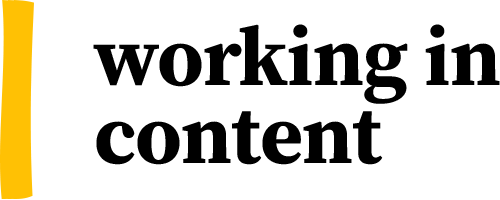The job market for content roles remains vibrant and diverse, spanning content strategy, UX writing, content design, and technical writing positions across industries. Companies are actively recruiting professionals who can shape compelling narratives, craft clear user experiences, and drive content excellence at scale. Current listings demonstrate strong demand from technology companies, financial institutions, healthcare organizations, and retail brands, with opportunities available at both established enterprises and innovative startups. Content professionals are particularly sought after as organizations invest in digital transformation, launch new products, and seek to differentiate themselves through superior content experiences.
Notify me about new jobs...
Get email notifications when new jobs matching your search are available.
Notify me Axiom Global Technologies
Content Management Specialist
Contract
Milford, CT
Content Manager
Jun 26th
Hot
Axiom Global Technologies
Content Management Specialist
Contract
Milford, CT
Content Manager
Jun 26th
Hot
 Informa TechTarget
Senior Content Strategist
$85k-100k/yr
Full-Time
Newton, MA
Content Strategist
Jun 18th
Informa TechTarget
Senior Content Strategist
$85k-100k/yr
Full-Time
Newton, MA
Content Strategist
Jun 18th
 Siemens Digital Industries Software
Senior Content Strategist
$101k-183k/yr
Full-Time
Milford, CT
Content Strategist
Jun 14th
Siemens Digital Industries Software
Senior Content Strategist
$101k-183k/yr
Full-Time
Milford, CT
Content Strategist
Jun 14th
 Insulet Corporation
Senior UX Content Strategist
$115k-173k/yr
Full-Time
Boston, MA
Content Strategist
Jun 4th
Insulet Corporation
Senior UX Content Strategist
$115k-173k/yr
Full-Time
Boston, MA
Content Strategist
Jun 4th
 Fidelity Investments
Senior Manager, Content Strategy
Full-Time
Providence, RI
Content Strategist
Jun 2nd
Fidelity Investments
Senior Manager, Content Strategy
Full-Time
Providence, RI
Content Strategist
Jun 2nd
The content landscape continues to evolve rapidly as organizations recognize the strategic importance of exceptional content across all touchpoints. Analysis of current job listings reveals several significant trends shaping the industry and creating new opportunities for content professionals:
Compensation packages vary significantly based on location, experience level, and specialization. Entry to mid-level content roles typically offer base salaries from $70,000-110,000, while senior and principal positions command $120,000-200,000+. Many roles include comprehensive benefits packages featuring health insurance, retirement plans, professional development allowances, and flexible time off policies. Additionally, numerous positions offer equity compensation, particularly at startups and tech companies, along with performance-based bonuses.
There is strong demand for practitioners who can combine strategic thinking with hands-on execution capabilities. Organizations are seeking professionals who can not only craft compelling content but also develop frameworks, establish governance models, and drive measurable business impact through content initiatives. This has led to the emergence of hybrid roles that combine multiple content disciplines, requiring professionals to be versatile and adaptable.
Remote and hybrid work arrangements have become standard, with many organizations offering flexibility in work location. However, some positions still require regular office presence, particularly in sectors like financial services and healthcare where in-person collaboration remains valued. Companies are increasingly investing in digital collaboration tools and processes to support distributed content teams while maintaining high standards of quality and consistency.
Technical expertise requirements continue to expand beyond traditional writing skills. Today's content professionals are expected to be proficient with design tools like Figma and Adobe Creative Suite, content management systems, analytics platforms, and emergent technologies like AI writing assistants. Knowledge of SEO, accessibility standards, and user research methodologies is increasingly valued across all content roles.
The growing focus on accessibility, inclusive design, and global audiences means content roles increasingly require understanding of accessibility standards, localization considerations, and creating content that serves diverse user needs. Companies are particularly interested in content professionals who can help create inclusive experiences that resonate with different cultural contexts and user capabilities.
Career growth opportunities are abundant, with clear paths for advancement from individual contributor roles to team lead and strategic positions. Many organizations are investing in building out dedicated content teams and establishing content centers of excellence, creating opportunities for content professionals to take on leadership roles and shape organizational content strategy at a high level.
The integration of artificial intelligence and machine learning tools is reshaping content workflows and creating new opportunities for content professionals to focus on higher-level strategic work while leveraging automation for routine tasks. However, human expertise in areas like tone of voice, brand storytelling, and complex content strategy remains highly valued and well-compensated.






